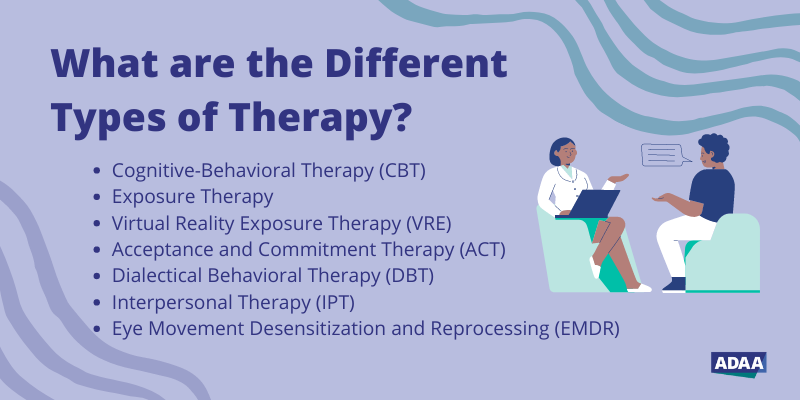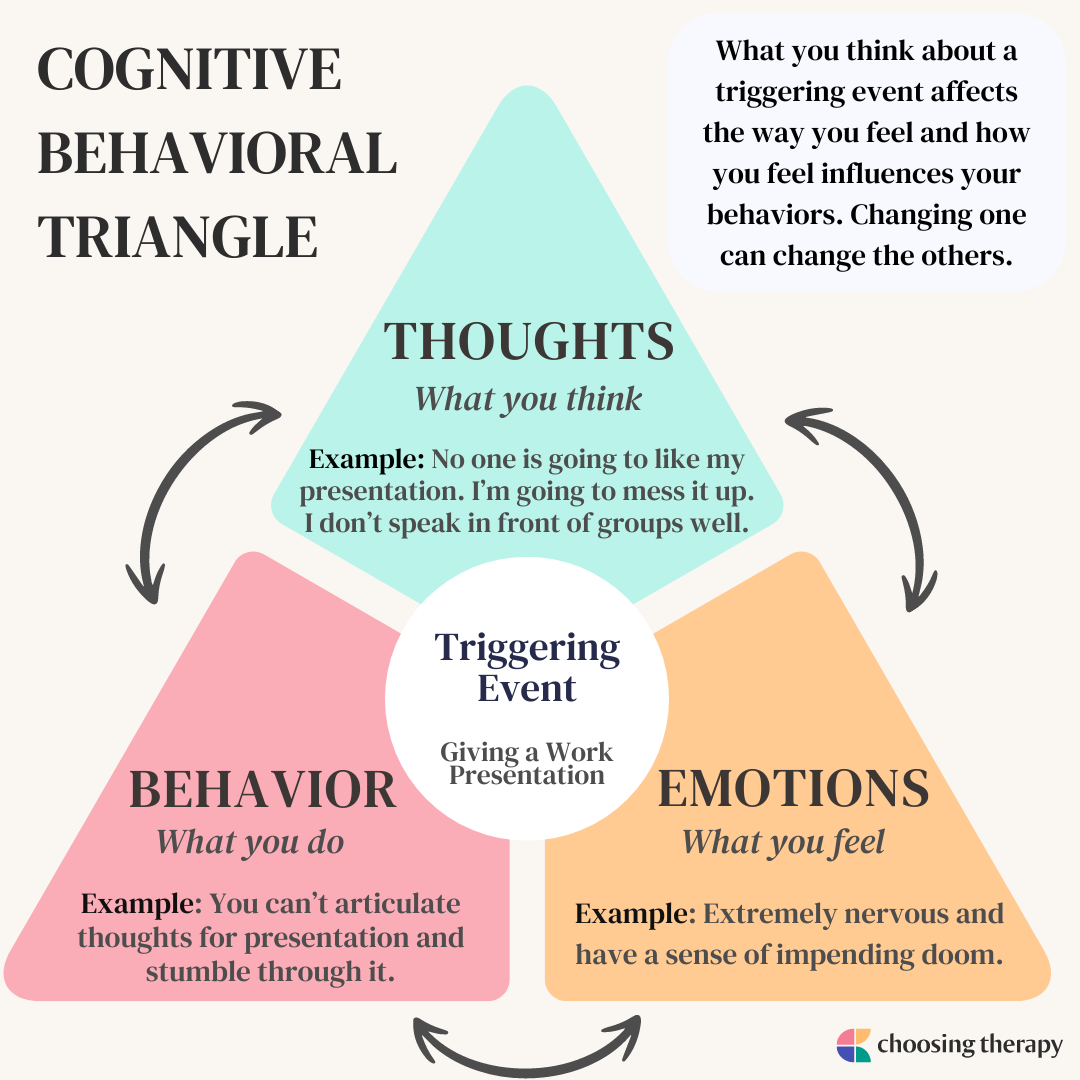Reclaim your emotional health through effective therapy for anxiety
Exploring Different Approaches in Coaching for Anxiousness Problem for Enduring Adjustment
When dealing with anxiety conditions, it's essential to explore a selection of counseling approaches. Each approach offers unique understandings and tools to assist you handle your signs effectively. You could find that combining methods can generate the finest results. Recognizing the subtleties of these methods is essential to promoting long-term modification. What if the right combination could launch a brand-new degree of emotional wellness for you?
Understanding Anxiousness Problems: A Short Summary
Anxiousness problems, which impact countless individuals worldwide, can significantly affect every day life. You might experience frustrating feelings of anxiety or fret that seem uncontrollable. These feelings can cause physical symptoms like an auto racing heart, sweating, or even dizziness. Typical kinds of anxiousness conditions consist of generalized anxiousness disorder, panic condition, and social anxiety disorder. Each has distinct indications, yet they all share a tendency to disrupt your routine and relationships.Understanding the source of your anxiousness is important. It could come from genes, mind chemistry, or life experiences. Recognizing your triggers can aid you manage your responses better. It is essential to keep in mind that you're not the only one in this battle. Many people deal with similar challenges, and looking for assistance is a strong step towards sensation better. By finding out about stress and anxiety disorders, you're currently on the path to understanding and managing your condition much more successfully.
Cognitive-Behavioral Treatment: Testing Unfavorable Thought Patterns
In Cognitive-Behavioral Treatment, you'll start by determining the negative thought triggers that add to your anxiousness. As soon as you recognize these ideas, you'll service replacing them with even more favorable alternatives. With each other, you'll develop effective coping methods to assist manage your anxiety in day-to-day scenarios.
Identifying Negative Idea Triggers

When you come across minutes of distress, acknowledging the particular triggers behind your unfavorable thoughts can be vital in handling stress and anxiety. Start by taking note of situations that prompt sensations of fear or fear. Is it a crowded room, an upcoming due date, or a conversation with specific individuals? Jot down these instances in a journal. This will help you identify patterns in your reasoning. Likewise, notification physical sensations that accompany your adverse ideas, like a racing heart or rigidity in your chest. By identifying these triggers, you obtain understanding into what's fueling your stress and anxiety. Comprehending these links is the initial step in challenging those ideas and eventually reclaiming control over your psychological actions.
Changing Ideas With Positives
Challenging unfavorable idea patterns is a crucial action in changing your state of mind and minimizing stress and anxiety. You might usually find on your own trapped in cycles of self-doubt or disastrous reasoning. Rather than allowing these ideas determine your feelings, method changing them with positive affirmations or reasonable choices. When you assume, "I can't handle this," change it to, "I can take care of difficulties one action at a time." This straightforward change can significantly affect your emotion. Frequently recognizing and countering these negative thoughts assists create a healthier inner discussion. Bear in mind, it takes time and initiative, however regularly practicing this technique can lead to enduring change, empowering you to face stress and anxiety with restored self-confidence and strength.
Structure Coping Techniques With Each Other
Replacing negative ideas is just the beginning of managing anxiousness effectively. To create enduring adjustment, you need to develop coping techniques that equip you. Cognitive-Behavioral Therapy (CBT) helps you determine and test those unhelpful idea patterns. With each other, you and your therapist can explore how these ideas effect your feelings and behaviors.Start by establishing sensible strategies, like journaling or mindfulness exercises, that enable you to challenge anxiety head-on. When you face your worries progressively, you'll learn to react differently.

Mindfulness and Acceptance-Based Approaches: Cultivating Present-Moment Awareness
As you browse the complexities of stress and anxiety, integrating mindfulness and acceptance-based techniques can substantially enhance your capability to cultivate present-moment awareness. By focusing on the present moment, you'll discover that you can observe your ideas and feelings without judgment (Counseling services for anxiety). This practice assists you acknowledge your anxiousness without feeling bewildered by it.Engaging in mindfulness exercises, such as deep breathing, body scans, or directed reflections, allows you to ground yourself in your present experience. Acceptance-based approaches encourage you to accept your emotions instead of combat versus them. They lose their power over you.Incorporating these techniques right into your day-to-day routine can transform just how you react to anxiousness when you accept your feelings. You'll create durability and find out to browse stressful circumstances with greater ease. Ultimately, cultivating present-moment understanding lays the foundation for long-term modification, empowering you to lead an extra fulfilling life
Exposure Therapy: Confronting Concerns Progressively
Direct exposure treatment helps you face your anxieties in a steady method, making it less frustrating. You'll find out techniques to face anxiety-provoking circumstances detailed, while also constructing coping methods to handle your reactions. This technique encourages you to take control and reduce anxiousness with time.
Steady Exposure Techniques

When encountering anxiety, progressively click here confronting your worries can be an effective method to regain control. This method, referred to as progressive exposure, involves slowly exposing yourself to the situations or items that activate your anxiousness. Start with less daunting circumstances and gradually work your means as much as more challenging ones. If you're worried of public speaking, you may begin by talking in front of a mirror, after that proceed to sharing ideas with a friend, and eventually deal with a small group. Each step aids desensitize you to the anxiety, building your self-confidence over time. Bear in mind, it's important to pace yourself and commemorate little success as you move with this process, strengthening your ability to manage anxiety effectively.
Building Coping Techniques
Building efficient coping approaches is important for taking care of anxiety, particularly as you face your fears slowly - Counseling services for anxiety. One effective approach is direct exposure therapy, where you begin by facing your anxieties in a regulated way. Start with much less daunting scenarios and slowly function your means up to more difficult situations. This progressive exposure assists desensitize you to anxiousness activates, making them less overwhelming.Incorporate leisure techniques, such as deep breathing or mindfulness, to relax your mind throughout exposure. Track your progress, commemorating little triumphes along the means to increase your self-confidence. Bear in mind, it's fine to take your time; the objective isn't excellence but steady improvement. By building these approaches, you'll equip yourself to navigate stress and anxiety and embrace life extra completely
Psychodynamic Therapy: Uncovering Source of Anxiousness
Psychodynamic treatment checks out the unconscious mind, exposing the source of your anxiety. By analyzing your ideas, feelings, and previous experiences, this technique aids you reveal underlying problems and unsolved issues that may add to your current stress and anxiety. You'll collaborate with a therapist to examine childhood years experiences, partnerships, and psychological patterns that shape your actions today.As you gain understanding into these deeper layers of your mind, you'll begin to identify just how past occasions influence your present behavior. This understanding can cause catharsis, enabling you to refine feelings you could have suppressed.Through the healing connection, you can likewise identify protection mechanisms that may have established over time, offering a more clear path to alter. Eventually, psychodynamic therapy furnishes you with the devices to resolve your stress and anxiety at its core, promoting enduring transformation in your emotional health.
Integrative and Holistic Methods: Integrating Techniques for Greater Efficiency
Incorporating different restorative methods can boost your journey toward managing anxiety more properly. By integrating aspects from cognitive-behavioral treatment, mindfulness practices, and alternative approaches, you can create a tailored strategy that addresses your distinct needs. You may use cognitive-behavioral methods to challenge negative idea patterns while integrating mindfulness exercises to ground yourself in the existing moment.Additionally, exploring all natural techniques such as yoga or reflection can advertise relaxation and decrease stress and anxiety signs. This blend permits you to develop higher self-awareness and resilience.Experimenting with these varied techniques can aid you discover what resonates most with you. Remember, it's concerning locating a harmony that works, instead of adhering to a single method. This integrative strategy not only offers immediate relief however likewise cultivates lasting skills for managing anxiety, encouraging you to redeem control over your life.
The Role of Support Systems: Structure Durability Through Link
While it may appear that taking care of anxiousness is a singular trip, having a strong support group can play a necessary role in your resilience. Bordering yourself with compassionate buddies, household, or assistance groups develops a safe area where you can freely share your experiences and feelings. You remind yourself that you're not alone in this struggle.These connections offer motivation and can provide useful coping strategies that have functioned for others when you connect with others. It's also a possibility to get point of view; close friends can help you see circumstances in different ways, reducing feelings of isolation.Moreover, emotional assistance cultivates a feeling of belonging, which can considerably reduce anxiety symptoms. By leaning on your support system, you can construct strength and deal with obstacles extra effectively. Remember, getting to out for aid suggests toughness, and it can make all the difference in your journey toward taking care of stress and anxiety.
Frequently Asked Concerns
What Are the Common Signs of Stress And Anxiety Conditions?
You may experience uneasyness, fatigue, problem concentrating, irritability, muscle stress, and sleep disturbances. Physical symptoms can include quick heart beat, sweating, and shivering. Identifying these indications early can assist you look for suitable support and therapy.
Exactly How Lengthy Does Treatment Usually Last for Anxiousness Conditions?
Therapy for anxiety conditions typically lasts anywhere from a few weeks to a number of months. It truly relies on your specific demands, progress, and the methods your specialist utilizes to assist you handle your stress and anxiety efficiently.
Can Drug Be Used Together With Therapy for Anxiety?
Yes, medicine can absolutely be utilized together with treatment for anxiousness. Incorporating both methods typically enhances treatment effectiveness, helping you take care of signs and symptoms while discovering underlying problems with therapy (Counseling services for anxiety). Always consult your health care supplier for customized advice
Are There Self-Help Techniques for Managing Anxiousness?
Yes, there are several self-help approaches for taking care of anxiousness. You can exercise mindfulness, take part in routine exercise, maintain a balanced diet plan, establish a regular, and use deep breathing methods to help in reducing stress and anxiety symptoms efficiently.
How Do I Know if I Need Expert Help for Anxiety?
